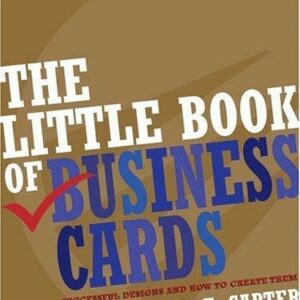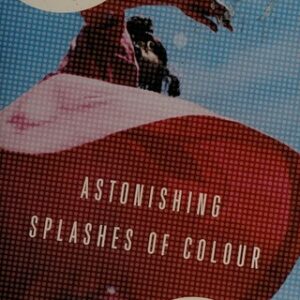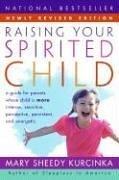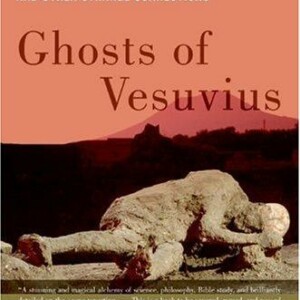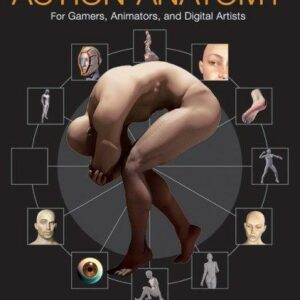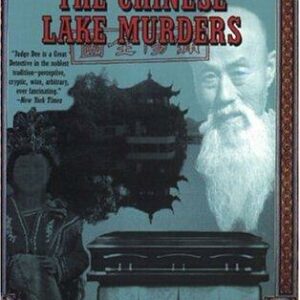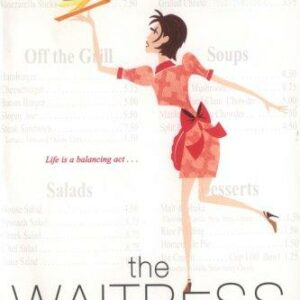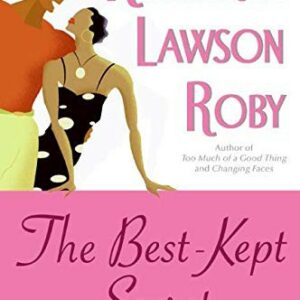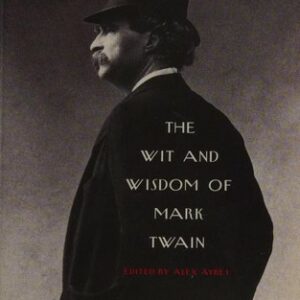Jane Austen, the Secret Radical
$17.00
| Title | Range | Discount |
|---|---|---|
| Trade Discount | 5 + | 25% |
- Description
- Additional information
Description
A brilliant, illuminating reassessment of the life and work of Jane Austen that makes clear how Austen has been misread for the past two centuries and that shows us how she intended her books to be read, revealing, as well, how subversive and daring–how truly radical–a writer she was.
In this fascinating, revelatory work, Helena Kelly–dazzling Jane Austen authority–looks past the grand houses, the pretty young women, past the demure drawing room dramas and witty commentary on the narrow social worlds of her time that became the hallmark of Austen’s work to bring to light the serious, ambitious, deeply subversive nature of this beloved writer. Kelly illuminates the radical subjects–slavery, poverty, feminism, the Church, evolution, among them–considered treasonous at the time, that Austen deftly explored in the six novels that have come to embody an age. The author reveals just how in the novels we find the real Jane Austen: a clever, clear-sighted woman “of information,” fully aware of what was going on in the world and sure about what she thought of it. We see a writer who understood that the novel–until then seen as mindless “trash”–could be a great art form and who, perhaps more than any other writer up to that time, imbued it with its particular greatness.
“A sublime piece of literary detective work. . . . Kelly shows us that the novels were about nothing more or less than the burning political questions of the day.” —The Guardian
“Do we read Jane Austen’s novels as she intended? In this riveting literary-biographical study, the answer is a resounding no . . . An interpretive coup that is dazzling and dizzying . . . You won’t read Austen the same way again.” —The New Yorker
“A fresh take on the life and work of the beloved writer Jane Austen . . . Reveals the subversive rebel soul behind [the] towering classics.” —Elle
“An important revisionary work. . . . Kelly’s readings are indeed eye-opening.” —The New York Times Book Review
“Ambitious . . . illuminating, provocative. . . . Kelly offers a salutary argument for reading Austen’s novels with the serious attentiveness they invite and deserve.” —The Spectator
HELENA KELLY grew up in North Kent. She has taught classics and English Literature at the University of Oxford. She lives in Oxford with her husband and son.Everyone—almost everyone—loves Pride and Prejudice.* It regularly tops lists of the hundred most important or best-loved novels. The hero and heroine, Darcy and Elizabeth, have developed lives of their own, rather like Sir Arthur Conan Doyle’s Sherlock Holmes. They’ve become cultural icons in their own right, their relationship the ultimate in literary romance.
I have a coffee mug that I was given a couple of Christmases ago. It’s one of a series that you can buy, “Classic novels abridged.” This one encapsulates the plot of Pride and Prejudice. “Mr Darcy is a proud man,” it reads. “Elizabeth Bennet doesn’t like him. They change their minds and get married. The end.”
There is, of course, rather more to it than that.
More than anything else, it’s the 1995 BBC television series of Pride and Prejudice that precipitated the current, two-decade-long period of intense, near-global obsession with Jane Austen. It’s this version that entered the cultural consciousness, creating such a strong hold for itself that when a member of the general public hears the title, the first image that appears in his or her mind is one that has no counterpart in the book: a sweaty Colin Firth stripping half-naked and diving into the lake at Pemberley. And there have been other very popular Pride and Prejudices since, lots of them: the 2005 film starring Keira Knightley; the Bollywoodized Bride and Prejudice; Bridget Jones’s Diary; Lost in Austen; Death Comes to Pemberley; Pride and Prejudice and Zombies; Curtis Sittenfeld’s Eligible. Even the “biopic” Becoming Jane riffed on Pride and Prejudice. All these retellings and variations work on the assumption that readers or viewers know the characters and the story very well, an assumption that doesn’t get made with Jane’s other books. The assumption isn’t wrong.
But it’s that same knowledge, that same sense of familiarity, which blinds us to much of what Pride and Prejudice is actually doing as a text. It makes it, perhaps, the most difficult out of all of Jane’s novels for us to read as she intended.
We all know that Pride and Prejudice is a happy, cheerful book, even if we haven’t read it. There’s a degree of truth there, but only a degree.
Jane herself, in one of those passages of her writing that it’s almost impossible to fix the tone of, called it “rather too light & bright & sparkling.”* It wanted, she said, “shade” and “to be stretched out here & there with a long Chapter—of sense if it could be had.” Failing long, sen- sible chapters, she suggests the book might benefit instead from adding passages of “solemn specious nonsense—about something unconnected with the story; an Essay on Writing, a critique on Walter Scott, or the history of Buonaparte.”
It isn’t that unusual to find long sections in eighteenth-century novels that seem to have nothing to do with anything; theoretical discussions about writing appear too.† There was, for a long time, a pervasive view that the novel, as a genre, wasn’t good enough—wasn’t sufficiently serious, intellectual, improving. This is something we discussed briefly in the chapter on Northanger Abbey, and the “defence of the novel” that appears there seems, in some respects, to chime with what Jane’s saying here. In Northanger Abbey, she sets the novel in opposition to other, traditionally better-respected, types of writing—essays, history—and she defends it against literary critics as well.
But any “history of Buonaparte” would, of its nature, be political, would, in spite of being called a “history,” be in effect current affairs.‡ Bonaparte, after all, was still very much a present threat in early 1813. And though Walter Scott’s poetry, like his later novels, was largely pseu- domedieval, though it had generally been reviewed very favorably, there had been one particular rather famous criticism—a “critique.” It had appeared in The Edinburgh Review in 1808 and focused on Scott’s long poem about wicked knights, villainous nuns, and the Battle of Flodden, fought between England and Scotland in 1513: Marmion.
Marmion ends with an address to “Statesmen grave,” wishing them “Sound head, clean hand, and piercing wit, / And patriotic heart—as Pitt!” Pitt is William Pitt, the youngest prime minister Britain has ever had, who had died in 1806. It was Pitt who’d overseen the government crackdown on radicalism in the 1790s, the increase in state surveillance, the suspension of habeas corpus, the forced union with Ireland after the Uprising, the expansion of the navy and the militia. The Edinburgh Review “critique” of Marmion ended with a sneering reference to the “political creed of the author.” Reviews could be an even touchier subject in the early nineteenth century than they are now.
What’s the reason that Jane starts to talk politics here, as she seems to be doing? Why does she follow up the references by asserting that her correspondent—Cassandra, as so often—would think differently (“I doubt your quite agreeing with me here—I know your starched notions”)? Are politics totally “unconnected with the story”?
In another letter penned a few days earlier, Jane mentions some print- er’s errors she’s noticed in the text of Pride and Prejudice: “There are a few Typical errors—& a ‘said he’ or a ‘said she’ would sometimes make the Dialogue more immediately clear.” No matter, though, she continues, “I do not write for such dull Elves As have not a great deal of Ingenuity themselves.”
This is, roughly, a quotation from the second-to-last stanza of Marmion. In the space of a few lines, the reader is encouraged to imagine how the hero, Wilton, and the heroine, Clara, are united and how all the stray plot strands will be tied up:
I do not rhyme to that dull elf,
Who cannot image to himself,
That all through Flodden’s dismal night,
Wilton was foremost in the fight;
. . .
Nor sing I to that simple maid,
To whom it must in terms be said,
That King and kinsmen did agree,
To bless fair Clara’s constancy;
Who cannot, unless I relate,
Paint to her mind the bridal’s state.
This stanza, the stanza that pops into Jane’s head when she’s thinking about how her newly appeared novel will be read, deals with what an author can expect a reader to do. It’s about the author’s desire for readers who can join the dots, follow implications and allusions through to their natural conclusions, who can “image” for themselves, “paint” for themselves, who don’t necessarily have to see the words set down in order to understand the message.
Jane wants readers who have a “great deal of ingenuity.” Isn’t it possible, then, that Pride and Prejudice isn’t quite so light and bright and sparkling as we’ve been led to believe? That there are darker, more serious layers to be uncovered?
In December 1943, on a visit to North Africa, the British wartime leader, Winston Churchill, fell seriously ill with pneumonia. Later he recalled that, confined to bed, banned from work, he “decided to read a novel” or, rather, to have his daughter Sarah read one to him. Having “long ago” read “Jane Austen’s Sense and Sensibility,” he thought that he would have Pride and Prejudice. Sarah read it to me beautifully from the foot of the bed. I had always thought it would be better than its rival. What calm lives they had, those people! No worries about the French Revolution, or the crashing struggle of the Napoleonic Wars. Only manners controlling natural passion so far as they could, together with cul- tured explanations of any mischances.*
This wasn’t an original idea. Rudyard Kipling, the great writer of empire, had drawn a very similar direct contrast in “The Janeites,” a short story centering on one character’s experiences in the trenches of World War I. In it, Jane’s novels are absurd, almost meaningless, and, paradoxically, a representation of civilization, salvation, and Britishness, a balm to wounded minds. The names and passages that the main character, the London-Cockney hairdresser Humberstall, learns to recite—and that get him out of more than one sticky situation—are to begin with all Greek to him. After the war, when he reads the books, he finds “nothing in ’em”— except the solace of seeing ordinary, everyday peacetime life reflected back to him.
In a novel of 1975 by Paul Scott—A Division of the Spoils, the last of the “quartet” on which the 1980s television series The Jewel in the Crown was based—a returned prisoner of war recalls discussing with one of his former captors what the experience of coming home might involve. The home in question is in colonial India, but the imagined return is both distinctly British and soothing, hypnotic even—“a comfortable chair in a cosy room,” “reading Pride and Prejudice, sipping a glass of special malt whisky, and fondling the ears” of a “faithful black labrador.” Dog, whisky, Pride and Prejudice—all are equally alien to India and, it’s implied, equally unimaginable in war, in its twentieth-century incarnation at least.
The idea that Jane’s novels offer a blissful, almost drugged-up, break from harsh reality doesn’t hold water, though. Remember that Britain was at war with France from 1793 to 1815, with only two short periods of peace. It’s this background that we have to place the books against. The “emigrant” mentioned in passing in Sense and Sensibility is a refugee from the French Revolution. Easy enough to miss the reference if you wanted to try to make the war and revolutionary unrest disappear; Jane doesn’t.
War is a constant presence in the novels, a buzz of background static that, at times, rises to earsplitting screeches and whines. Later, we’ll see just how closely the plot of Persuasion is built around the “crashing struggle” of the Napoleonic Wars. In that novel, the heroine’s family objects to her marrying a naval officer not just because they’re snobs but because there is a very real risk that he will be killed or injured, leaving her with little money. She breaks off the engagement because she thinks he’s more likely to advance in his career without her, married men tending not to possess quite the dazzling recklessness required. He returns years later with a fortune acquired by seizing enemy ships, hardly a blameless or a bloodless pursuit and very far from a safe one. While Anne has sat at home, “quiet, confined,” and anxiously poring over the newspapers, Captain Wentworth has been braving sabers, musket fire, and cannon. Persuasion ends with “the dread of a future war.”
Possibly Winston Churchill was familiar with the 1940 Hollywood film of Pride and Prejudice starring Laurence Olivier and Greer Garson, which transfers the action to the Victorian era and softens almost all of Jane’s jagged edges, even succeeding in the difficult task of making Darcy’s aunt Lady Catherine de Bourgh lovable. Churchill seems to have known what he was going to find in the novel before he ever opened it (he had “always thought it would be better”); I’d suggest he’s very far from being the only reader to approach the book through a haze of preconceptions. Either way, we have to wonder how much of Jane Austen’s Pride and Prejudice he actually heard, and how much he tuned out, as he dozed.
Because what he doesn’t seem to have registered is that for a novel which is supposedly far removed from any concerns about war, it’s crammed with references to soldiers. Its pages are peppered with the words “regiment,” “militia,” “officers.” Sense and Sensibility has one colonel—Colonel Brandon, who seems to have retired from military life.* Pride and Prejudice features two, both of whom—as far as we know—are still active. One major character and quite a number of minor ones are pursuing military careers, though, naturally, as officers. The ranks of the militia were supposed to be filled by lot, but you could pay to be taken out, so in practice the landowning and even middling classes were exempt.†
Both Persuasion and Mansfield Park have been called naval novels because they focus on characters who are sailors; if Jane ever wrote an army novel, then it’s this one.
And it’s one that, unlike Sense and Sensibility, is definitively set during wartime. At the end of the book, when Jane details the various fates of the different characters, she mentions, explicitly, “the restoration of peace.” The whole action of the novel, then, takes place during active hostilities. But to Jane’s first readers this would have been apparent from early on. The “regiment of militia” that in chapter 7 takes up its winter quarters in the heroine’s hometown of Meryton and, halfway through the book, moves to a larger camp at Brighton, on the south coast, would have been shifted around the country like this only during a time of war. The summer army camps strung along the south coast weren’t there just to train recruits in the bracing sea breezes; they were there to defend against invasion.
________________________________________________
* One notable exception is Mark Twain, who once wrote in a letter that every time he read the book, he wanted to dig Jane up and “beat her over the skull with her own shin-bone.”
* Letter to Cassandra Austen, dated only with “February 4,” though the year of composition is clearly, from internal references, 1813.
† Henry Fielding’s Joseph Andrews (1742), sometimes called the first English novel, is a notable, but hardly solitary, example.
‡ One positively glowing “Memoir of General Buonaparte” had been printed in the magazine of the London Corresponding Society, the group that really did want to have a revolution and overthrow the British government. Moral and Political Magazine of the London Corresponding Society 1 (1796–97).
* The story appears in more than one place; the museum now in Chawton Cottage, where Jane lived, used to have it in a letter, mounted on the wall in what’s supposed to have been Jane’s bedroom.
* Mr. Weston, in Emma, we’re told, once served for some time in the militia as a captain, some twenty or twenty-five years before the story starts. It is, as we’ll see, difficult to date Emma’s set- ting with any certainty.
† It was possible to insure against being drawn for the militia. A premium of 25 shillings would allow you to evade service if you wished (see, for example, the Hereford Journal, Feb. 1, 1797).US
Additional information
| Dimensions | 0.7900 × 5.2300 × 7.9300 in |
|---|---|
| Imprint | |
| Format | |
| ISBN-13 | |
| ISBN-10 | |
| Author | |
| Audience | |
| BISAC | |
| Subjects | jane austen gifts, Sense and Sensibility, Northanger Abbey, Pride and Prejudice, english history, imperialism, feminist theory, literary criticism, women history, Persuasion, jane austen books, persuasion jane austen, jane austen pride and prejudice, literary biography, womens studies, women biography, books about jane austen, Jane Austen, feminist, feminism, BIO022000, biography, aristocracy, women's rights, anthology, cultural history, LIT004120, british history, biographies, literary fiction, essays, Jane Austen biography, Emma, Mansfield Park |


